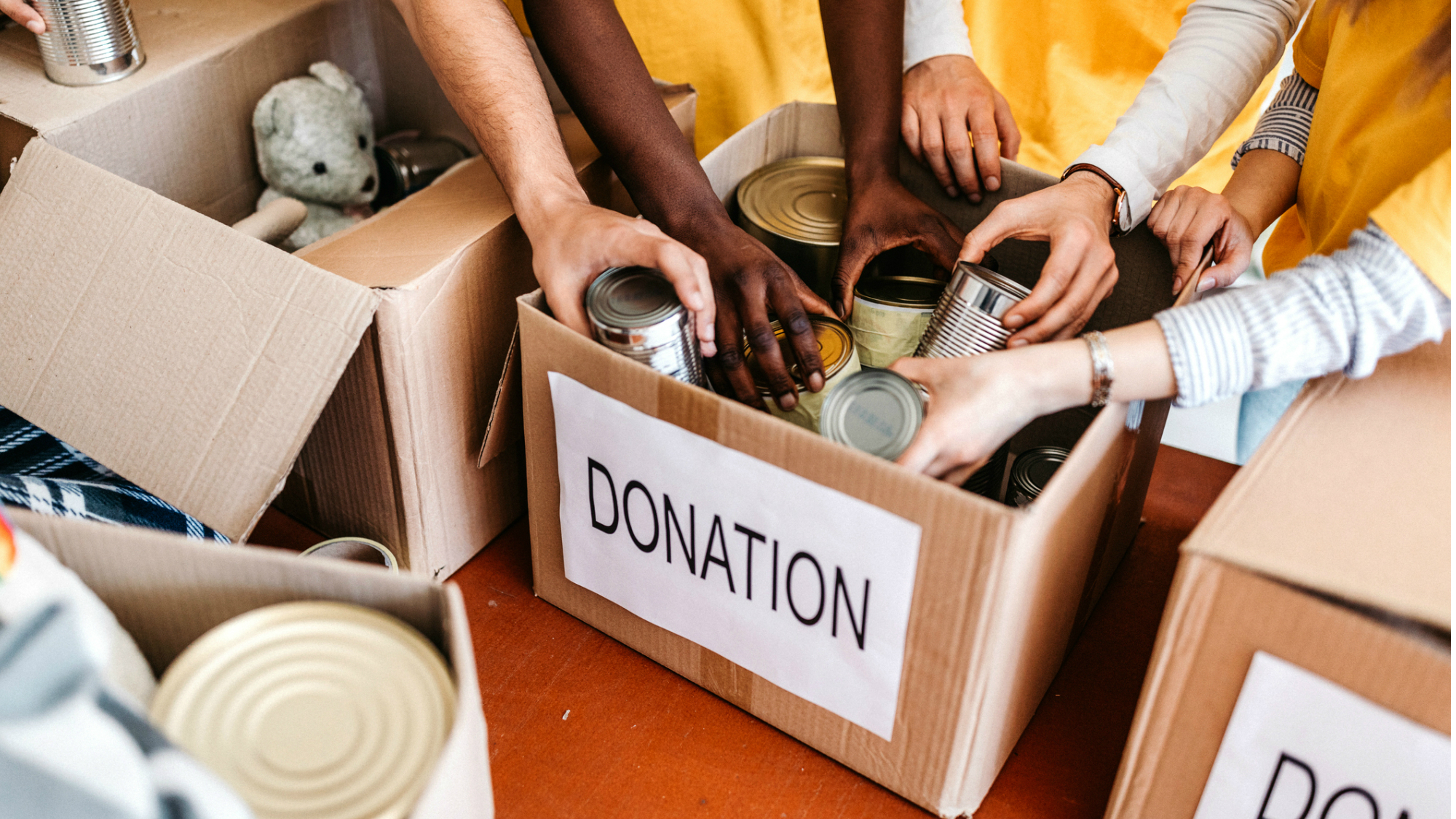Hunger is epidemic in the UK - here's how you can help
Lockdown may be easing, but for millions of Britons, hunger continues to spread fast. From donating goods and money to volunteering, here's what you can do to help tackle the crisis


Celebrity news, beauty, fashion advice, and fascinating features, delivered straight to your inbox!
You are now subscribed
Your newsletter sign-up was successful
Lockdown may be easing, but for millions of Britons, hunger continues to spread fast. From donating goods and money to volunteering, here's what you can do to help tackle the crisis
Whoever referred to the pandemic as the 'great equaliser' was wrong. As we ease out of lockdown, we're gaining sight of the total havoc that months of isolation and unemployment have wreaked on people's lives - and our most vulnerable have been hit the hardest.
With up to 7.3 million currently living off reduced or missed meals due to lack of money, families and young adults have been the worst affected.
According to new data from the Food Standards Agency (FSA), households with children, people with health issues and those aged 16-24 were most likely to skip meals or use food banks to feed themselves or their family in April and May.
The results show that while one in six people reported being food insecure in May - meaning they either skipped meals or cut down portions - this figure rose to just under a quarter for families with children, and a third for 16-24 year olds.
The survey also found that almost a fifth of adults with a physical or mental health disability had been food insecure in May.
And this is sadly only the beginning. With some food banks reporting surges in demand of almost 300% already, there's fear that we'll be faced with an unprecedented social crisis as soon as temporary protections such as the eviction ban and chancellor Rishi Sunak's furlough scheme come to an end.
Celebrity news, beauty, fashion advice, and fascinating features, delivered straight to your inbox!
Commenting on the FSA's findings, a government spokesperson said: 'The extraordinary circumstances of this pandemic have meant real financial difficulty for many households'
Releasing the government's agenda to help those in need, the spokesperson added: 'To help those who are struggling to afford food and other essentials, we are supporting frontline charities and community groups with a grant of up to £16m, and we recently announced an extra £63m which will be given to and distributed by local authorities to those in need.'
With the hunger crisis raging on, it's clear the need for supplies is greater than ever. Here's what you can do to help your local food bank:
Ask what they need
The most effective way to help food banks at the moment is probably one of the simplest - ask what they need. While the Trussell Trust, the UK's largest network of food banks, helps to set up and support sites, the individual organisation in your own area may not have as much reach or support.
So check out their website, twitter and Instagram to see what they're appealing for, or give them a call directly. Of course food is essential, but essential non-food items like toiletries and hygiene products are also useful - so before donating, check in with your local food bank to gauge what they're after.
To find the closest Trussell Trust food bank to you, you can use their online search tool.
Volunteer
If you're not in an at-risk group and have some time on your hands, try volunteering. Throwing yourself into action will allow you to connect with your community at a time where we've never felt more isolated. Sign up to volunteer with the Trussell Trust here or call into your local food bank to give them a few hours of your time.
Make a donation
If you're shielding, make a financial donation to your local food bank instead. See if your local food bank accepts online donations by checking out their website. For the Trussell Trust, you can donate directly here.
Niamh McCollum is Features Assistant at Marie Claire UK, and specialises in entertainment, female empowerment, mental health, social development and careers. Tackling both news and features, she's covered everything from the rise of feminist audio porn platforms to the latest campaigns protecting human rights.
Niamh has also contributed to our Women Who Win series by interviewing ridiculously inspiring females, including forensic scientist Ruth Morgan, Labour MP Stella Creasy and ITV’s former Home Affairs Editor Jennifer Nadel.
Niamh studied Law in Trinity College Dublin. It was after enrolling in a Law & Literature class on her year abroad in Toronto that her love of writing was reignited. In no particular order, her big likes are Caleb Followill, hoops, red wine, sea swimming, shakshuka and long train journeys.
